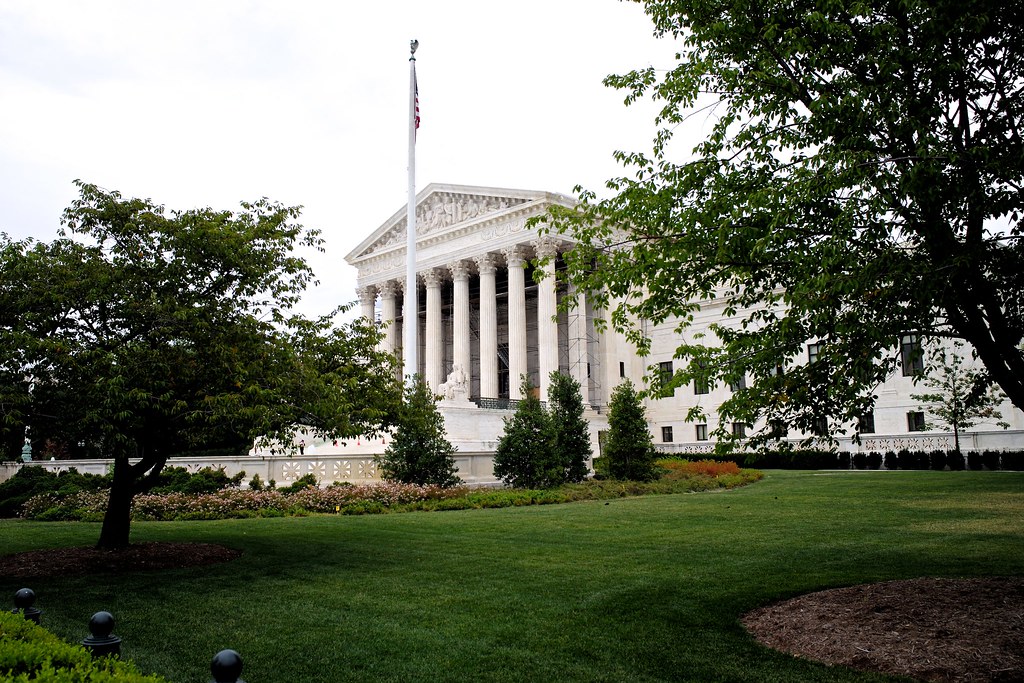Key Takeaways
- A federal judge ruled Trump’s policy tying FEMA aid to immigration cooperation unconstitutional.
- The decision found the executive order violates the Administrative Procedure Act and the Spending Clause.
- Judge William E. Smith warned the Supreme Court might overturn his ruling silently.
- The ruling came from a lawsuit by Illinois and could affect other “sanctuary” states.
Trump ICE Policy Blocked by Rhode Island Judge
A federal judge in Rhode Island struck down President Trump’s ICE policy that withheld disaster relief from states with sanctuary rules. Judge William E. Smith rejected the administration’s effort to dismiss Illinois’s lawsuit. He said the policy was both illegal and unconstitutional. Therefore, states cannot lose FEMA funds based on their stance toward local immigration enforcement.
Background on the Executive Order
Soon after taking office, President Trump signed an order called “Protecting the American People Against Invasion.” It directed Homeland Security to cut federal funds to any state with sanctuary rules. These rules limit local police from helping federal agents enforce immigration laws. Many cities and states follow such policies under long-standing court precedent. They do so without blocking federal actions.
Judge Finds Trump ICE Policy Unlawful
In a detailed 53-page opinion, Judge Smith ruled the Trump ICE policy violated the Administrative Procedure Act. He said it was “arbitrary and capricious” to punish states without clear legal authority. Moreover, the policy breached the Spending Clause of the Constitution. Congress had already allocated those funds without the new conditions. Thus, the president overstepped his power by adding fresh requirements.
Legal Basis for the Ruling
Judge Smith applied two key legal tests. First, he looked at whether the administration followed proper rulemaking steps under the Administrative Procedure Act. They did not. Second, he checked if Congress had approved the funding conditions. Again, they had not. Consequently, the court held that the executive branch cannot unilaterally rewrite federal spending rules.
The Role of “Sanctuary” Policies
Sanctuary policies vary by state and city. Generally, they bar local officials from seeking immigration status during routine policing. Courts have upheld these policies if they do not obstruct federal officers. Therefore, many jurisdictions felt safe adopting restrictions to protect immigrant communities. The ruling confirms they may keep those policies without losing FEMA support.
Judge’s Warning on Trump ICE Policy and Supreme Court
On page 25 of his decision, Judge Smith expressed worry the Supreme Court could block him using its “shadow docket.” He noted past emergency rulings lacked full explanations. He agreed to follow higher court precedent but feared a sudden reversal. This broadside at the Supreme Court added a rare public critique of its secretive emergency orders.
What Is the Shadow Docket?
The shadow docket refers to urgent decisions made without full briefing or explanation. Justices sometimes use it to issue rapid rulings. Critics say this process undermines transparency and fair procedure. Judge Smith joined other lower court judges in complaining that the shadow docket creates legal uncertainty. In this case, he felt the policy’s fate might hinge on an unexplained order from the high court.
Next Steps and Possible Appeals
The ruling does not end the dispute. The Trump administration can appeal to the First Circuit Court of Appeals. If the First Circuit agrees, the case may reach the Supreme Court. There, justices could choose to hear a full appeal or act again on the shadow docket. Meanwhile, states with sanctuary rules can count on continued FEMA support—for now.
Implications for States and Cities
This ruling offers relief to states and cities that fear funding cuts. It reinforces the principle that Congress, not the president, sets spending conditions. Moreover, it underscores the judicial branch’s role in checking executive actions. For local leaders, the judgment may encourage greater cooperation with federal authorities in non-immigration matters, without risking disaster aid.
Broader Impact on Separation of Powers
By striking down the Trump ICE policy, Judge Smith emphasized limits on presidential power. He cited recent Supreme Court precedents, including a concurrence by Justice Gorsuch. The decision highlights how courts guard against executive overreach. It also suggests that any future funding conditions must come through Congress, not executive directive.
Conclusion
The court’s decision delivers a setback to the administration’s immigration enforcement strategy. It confirms that tying disaster relief to cooperation with ICE exceeded presidential authority. While the Trump administration may appeal, the ruling stands as a strong defense of the Administrative Procedure Act and the Spending Clause. However, Judge Smith’s warning reminds us that the Supreme Court’s shadow docket could still change the outcome without public explanation.
Frequently Asked Questions
What was the Trump ICE policy about?
The policy cut FEMA disaster relief to states and cities considered “sanctuary” jurisdictions. It required them to assist federal immigration agents.
Why did the judge block the policy?
Judge Smith found it violated two laws. It ignored the Administrative Procedure Act’s rulemaking steps. It also broke the Constitution by adding spending conditions not approved by Congress.
Could the Supreme Court reverse this ruling?
Yes. The administration can appeal. The Supreme Court might use its shadow docket to issue an emergency reversal. That process often offers no detailed reasoning.
How does this affect sanctuary cities?
Sanctuary cities can remain limits on local immigration cooperation without losing FEMA aid. The ruling protects their funding and upholds legal precedent on local autonomy.
